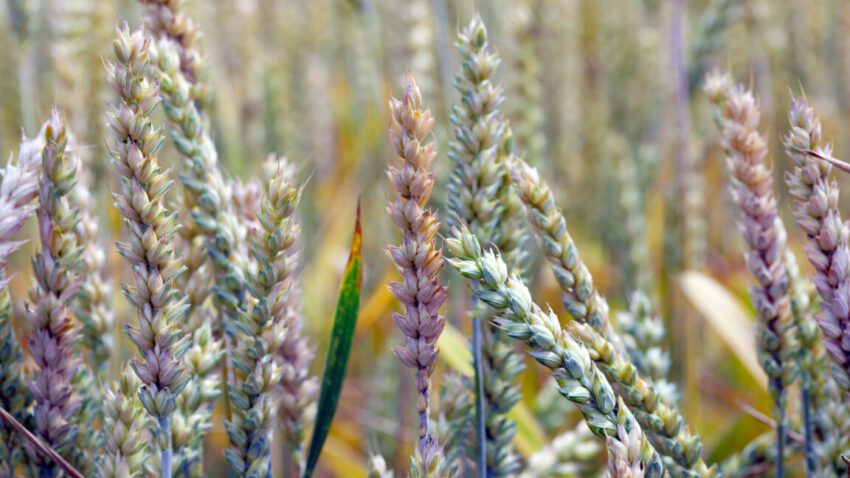
scientist pleaded guilty to smuggling fusarium graminearum A Chinese plant scientist has pleaded guilty to charges related to the smuggling of a crop-damaging fungus into the United States, raising significant concerns about agricultural biosecurity.
scientist pleaded guilty to smuggling fusarium graminearum
Background of the Case
On November 12, 2025, Yunqing Jian, a 33-year-old scientist affiliated with the University of Michigan, entered a guilty plea regarding her involvement in smuggling Fusarium graminearum, a notorious pathogen known for its detrimental effects on various crops, particularly grains. Jian’s arrest in June 2025, alongside another Chinese scientist, attracted national attention and sparked discussions about the implications of such actions on U.S. agriculture and biosecurity.
As part of her plea agreement, Jian received a sentence of time served and is expected to be deported. The case has raised questions not only about the motivations behind the smuggling but also about the broader implications for agricultural practices and food security in the United States.
Understanding Fusarium graminearum
Fusarium graminearum is a fungal pathogen that primarily affects cereal crops, including wheat, corn, and barley. It is known for causing a disease called Fusarium head blight (FHB), which can lead to significant yield losses and reduced grain quality. The pathogen produces mycotoxins, particularly deoxynivalenol (DON), which can contaminate grains and pose health risks to humans and livestock.
Impact on Agriculture
The economic impact of Fusarium graminearum is substantial. According to estimates from the U.S. Department of Agriculture (USDA), the pathogen costs wheat and barley farmers over $1 billion annually. This figure encompasses losses from reduced yields, increased production costs due to the need for fungicide applications, and the potential loss of market access due to contaminated grain.
In addition to economic losses, the presence of Fusarium graminearum in crops can have far-reaching implications for food safety. The mycotoxins produced by the fungus can lead to serious health issues, including gastrointestinal illness and immune system suppression in humans and animals. This has prompted regulatory agencies to establish strict guidelines for acceptable levels of mycotoxin contamination in food products.
Historical Context
Fusarium graminearum is not a new threat to American farmers. The pathogen has been present in the United States for decades, with documented outbreaks occurring as early as the 1990s. However, the increasing prevalence of the fungus in recent years has raised alarms among agricultural experts. Factors such as climate change, which can create more favorable conditions for fungal growth, and the globalization of trade, which can facilitate the spread of pathogens, have contributed to the heightened risk.
Reactions from the Scientific Community
The arrest and guilty plea of Yunqing Jian have elicited a range of reactions from the scientific community and agricultural stakeholders. Many experts have expressed concern over the implications of smuggling pathogens, particularly in an era where biosecurity is paramount. Tom Allen, an extension and research professor of plant pathology at Mississippi State University, has commented on the significance of the case, emphasizing the need for vigilance in protecting U.S. agriculture from foreign pathogens.
Allen notes that while Fusarium graminearum is already a known threat, the introduction of new strains or variants could exacerbate the situation. The potential for increased virulence or resistance to existing control measures poses a serious risk to crop production. This underscores the importance of ongoing research and monitoring efforts to manage the pathogen effectively.
Biosecurity Measures
The case has reignited discussions about biosecurity measures in the United States. Agricultural biosecurity refers to the practices and policies aimed at preventing the introduction and spread of harmful organisms that can threaten food production. The USDA and other agencies have implemented various strategies to safeguard U.S. agriculture, including surveillance programs, quarantine measures, and public awareness campaigns.
Experts advocate for a multi-faceted approach to biosecurity that includes collaboration between government agencies, researchers, and farmers. This collaboration is crucial for early detection and rapid response to potential threats. Additionally, educating farmers about best practices for managing Fusarium graminearum and other pathogens can help mitigate risks and protect crop yields.
Legal and Ethical Implications
The legal ramifications of Jian’s actions extend beyond her individual case. The smuggling of agricultural pathogens raises ethical questions about the responsibilities of scientists and researchers. The integrity of scientific research relies on trust and transparency, and actions that undermine this trust can have lasting consequences for the scientific community as a whole.
Furthermore, the case highlights the potential vulnerabilities within the U.S. immigration and visa system, particularly concerning foreign researchers. While international collaboration is essential for advancing scientific knowledge, it is crucial to ensure that individuals entering the country for research purposes adhere to ethical standards and comply with legal regulations.
Future Considerations
As the agricultural landscape continues to evolve, the threat posed by pathogens like Fusarium graminearum will remain a pressing concern. The case of Yunqing Jian serves as a reminder of the importance of vigilance in safeguarding U.S. agriculture. Ongoing research into disease management, the development of resistant crop varieties, and the implementation of effective biosecurity measures will be essential in mitigating the risks associated with this and other pathogens.
Moreover, fostering a culture of ethical research practices and promoting transparency within the scientific community will be vital in preventing similar incidents in the future. As the world becomes increasingly interconnected, the potential for the spread of agricultural pathogens will continue to grow, necessitating a proactive approach to biosecurity.
Conclusion
The guilty plea of Yunqing Jian has brought to light the serious implications of smuggling agricultural pathogens into the United States. Fusarium graminearum is a well-documented threat to crops, with significant economic and health impacts. The case underscores the need for robust biosecurity measures, ethical research practices, and ongoing collaboration among stakeholders in the agricultural sector. As the challenges posed by pathogens evolve, so too must the strategies employed to protect U.S. agriculture and ensure food security for the future.
Source: Original report
Was this helpful?
Last Modified: November 14, 2025 at 11:36 pm
0 views















